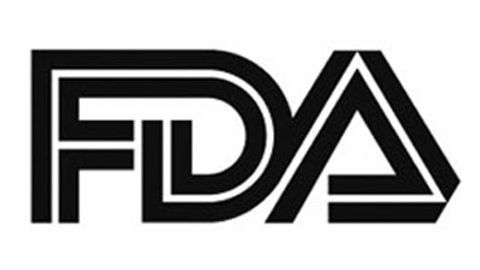Toripalimab Rolling Submission of BLA Initiated for Nasopharyngeal Carcinoma
A rolling submission of the Biologics License Application was initiated for toripalimab for the treatment of patients with recurrent or metastatic nasopharyngeal carcinoma.

A rolling submission of the Biologics License Application (BLA) was initiated for toripalimab for the treatment of patients with recurrent or metastatic nasopharyngeal carcinoma (NPC). The developer, Shanghai Junshi Biosciences Co., Ltd announced plans to submit the BLA back in September 2020, after the agent showed promise in the phase 1b/2 POLARIS-02 trial (NCT02915432) and was granted Breakthrough Therapy Designaton.1
“There has been limited development of treatment approaches for patients with advanced NPC in the United States [US]," Patricia Keegan, MD, chief medical officer of Junshi Biosciences, said in a statement. “We are determined to advance effective treatments in the US by leveraging the successful experience with toripalimab, a safe and effective treatment for previously treated NPC that is now approved for marketing in China.”
In POLARIS-02, the safety and efficacy of toripalimab was assessed in patients with recurrent or metastatic nasopharyngeal carcinoma, head and neck cancer, gastric cancer, and esophageal cancer. There was a cohort of 190 patients with nasopharyngeal carcinoma included in the study.2
Toripalimab led to an objective response rate (ORR) of 20.5% (95% CI, 15.0%-27.0%) with a median duration of response (DOR) of 12.8 months (95% CI, 9.4–not estimable). In terms of survival, the median progression-free survival (PFS) was 1.9 months (95% CI, 1.8-3.5), and the median overall survival (OS) was 17.4 months (95% CI, 11.7-22.9).
Those enrolled were 18 years of age or older with histologically or cytologically documented recurrent or metastatic disease haryngeal carcinoma that was refractory to previous standard chemotherapy, an ECOG performance status of 0 or 1, and measurable disease, per the eligibility protocol of the study.
The primary end point of the study was ORR per independent review committee, according to RECIST v1.1 criteria. The key secondary end points were safety, DOR, disease control rate, PFS, and OS.
The Breakthrough Therapy Designation given to toripalimab, an anti–PD-1 monoclonal antibody, in September 2020 was based on preliminary clinical evidence suggesting it could show substantial improvement over the current therapies in this setting. The designation will expedite the development and review of this agent for patients with NPC.
“We appreciate the FDA’s recognition of this potentially important new treatment through its Breakthrough Therapy Designation, which enables the acceleration of the review process,” Keegan continued. “We will work closely with the FDA to facilitate the review of the US marketing application in order to make toripalimab available for patients in the US as soon as possible.”
Toripalimab is the first of its type to be approved for marketing in China, has been studied in over 30 clinical trials globally, and has over 15 indications. If this drug is approved for the treatment of recurrent or metastatic NPC and the collaboration between Shanghai Junshi Biosciences Co., Ltd. and Coherus Biosciences, Inc. is closed successfully, the companies will file additional toripalimab BLA supplements with the FDA over the next 3 years for multiple disease types including non–small cell lung cancer, as well as more rare cancers. The collaboration was started in February 2021 to develop and commercialize toripalimab in the US and Canada.
“Toripalimab could address a significant unmet medical need as a new treatment for advanced NPC, and we are encouraged by the initiation of the BLA submission,” Denny Lanfear, chief executive officer of Coherus Biosciences, Inc., said in a press release. “With an extensive clinical development program across a range of tumor types, a broad therapeutic profile is developing for toripalimab. We look forward to working with Junshi Biosciences to bring this new anti–PD-1 antibody to patients in the US and Canada.”
The FDA has granted toripalimab 1 Breakthrough Therapy, 1 Fast Track, and 3 Orphan Drug Designations for the treatment of patients with NPC, mucosal melanoma, and soft tissue sarcoma.
In December 2018, toripalimab was given conditional approval from the National Medical Products Administration (NMPA) for the treatment of patients with unresectable or metastatic melanoma in the second line. Since then, it has been included in the 2019 and 2020 Guidelines for Chinse Society of Clinical Oncology for the Diagnosis and Treatment of Melanoma. The NPMA accepted a supplemental new drug application for this agent in May 2020 to treat patients with metastatic urothelial carcinoma also in the second line and subsequently received a priority review designation from the NMPA in July 2020.
Toripalimab was included in the National Reimbursement Drug List in December 2020. In February 2021, a supplemental New Drug Application was accepted by NMPA for toripalimab combined with chemotherapy in the first line for patients with advanced recurrent or metastatic NPC. That month, the NMPA also granted a conditional approval to this drug for the same patient population after progression on 2 or more lines of prior systemic therapy.
Reference:
1. Junshi Biosciences and Coherus BioSciences announce initiation of rolling submission of BLA for toripalimab to the U.S. FDA for the treatment of nasopharyngeal carcinoma. News release. Coherus BioSciences, Inc. Published March 3, 2021. Accessed March 4, 2021.
2. Wang F-H, Wei X-I, Feng J, et al. Efficacy, safety, and correlative biomarkers of toripalimab in previously treated recurrent or metastatic nasopharyngeal carcinoma: a phase 2 clinical trial (POLARIS-02). J Clin Oncol. 2021;39(7):704-712. doi:10.1200/JCO.20.02712
Neoadjuvant Therapy Could Improve Outcomes for Nasal and Paranasal Sinus Cancer
September 17th 2024Neoadjuvant chemotherapy prior to surgery and postoperative radiation therapy could improve organ preservation in patients with T3 and T4a nasal and paranasal sinus squamous cell carcinoma.
Read More